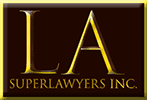Alter-Ego Liability
People usually form corporations for one simple reason: to insulate themselves from liability. In some instances, however, the corporate status is abused. In those situations, the doctrine of alter ego allows a litigant to “pierce the corporate veil” and go after individual corporate shareholders, holding them responsible for crimes or civil wrongdoing (money damages) committed in the corporate name.
In the world of civil litigation, the alter ego doctrine is often invoked, and depending on the circumstances, courts may be sympathetic to employees or vendors or customers who suffer a significant loss that the company cannot pay.
Large, sophisticated companies with multiple affiliated corporate entities can be brought into suits and face significant exposure on the ground that an affiliate is not really separate–and is thus an alter ego. In California, even entrepreneurs operating through a limited liability company can find their liability shield challenged on the basis of alter ego. And the timing of an alter ego claim can also have repercussions. Given the doctrine’s importance, it is worthwhile to explore it and take a look at recent developments in this area of law.
To establish alter ego, a plaintiff must show that two conditions are met:
First, there must be such a unity of interest and ownership between the corporation and its equitable owner that the separate personalities of the corporation and the shareholder (or other corporate entity) do not in reality exist.
Second, there must be an inequitable result if the acts in question are treated as those of the corporation alone. (See F. Hoffman-La Roche v. Superior Court, 130 Cal. App. 4th 782, 796 (2005).)
In discussing alter ego, courts have often emphasized that it is a “limited doctrine” that will be invoked “only where recognition of the corporate form would work an injustice to a third person.” (Tomaselli v. Transamerica Ins. Co., 25 Cal. App. 4th 1269, 1285 (1994).) In other words, alter ego is the exception, not the rule. Indeed, the very purpose of establishing a corporate form is to isolate and limit liability to the corporation, as well as protect its shareholders.
Clients who do not observe all corporate formalities, or who do not adequately capitalize their businesses, or whose businesses cause significant risks (e.g. a wild animal park) but who lack insurance, may be facing liability under an alter ego theory.
More Information:
- How Do You Prove Your Alter Ego?
- What Does The Legal Doctrine Of Alter Ego Allow The Courts To Do If They Determine That The Company Is The Alter Ego Of Its Owner?
What Types Of Business Litigation Cases Does Your Firm Typically Handle?
We handle a wide variety of disputes. Prior to litigation, we always determine in consultation with our clients whether it makes economic sense to file suit. This determination will be based on whether the adverse parties have done something serious enough to merit filing suit and incurring the costs for litigation, and whether the adverse parties are collectible. If the wrongdoer is without financial means, then incurring the cost to sue them and get a judgement may not make economic sense. This is something I will address with the client at the earliest possible opportunity, because business litigation involves paying attorneys, accruing court and deposition-related costs, as well as a sacrifice of time and resources to prepare for litigation. Read More
Why Would The Government Investigate And Take Enforcement Action Against A Business?
The greater the level of publicity and the greater the level of potential harm to individuals and the public at large, the greater the likelihood of an investigation by the federal or state government, and potentially a court action. For instance, if there are multiple reports of people sustaining injuries from a brand-new transportation device that’s sold at a local chain of stores, that’s going to draw a lot of publicity, and may lead to an investigation or more serious governmental action. Read More
If you need counsel to review your company’s recordkeeping, and to deal with a potential issue of piercing the corporate veil, please contact us at (310) 477-7767 or fill out the form here.

Call Now For A Free Consultation
(310) 477-7767
